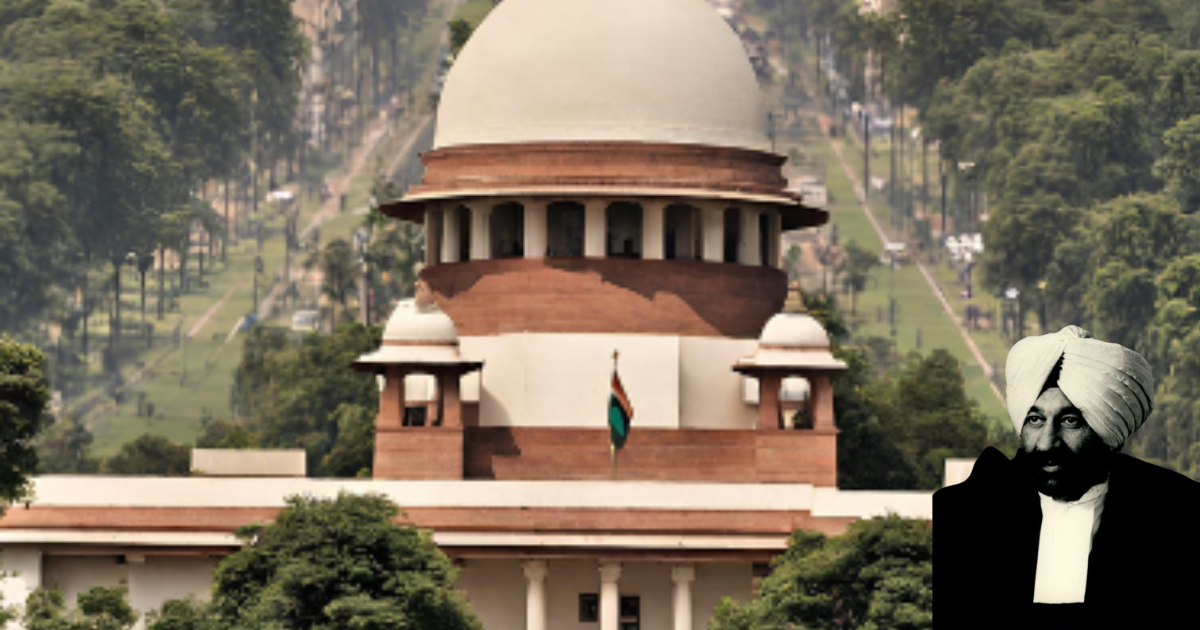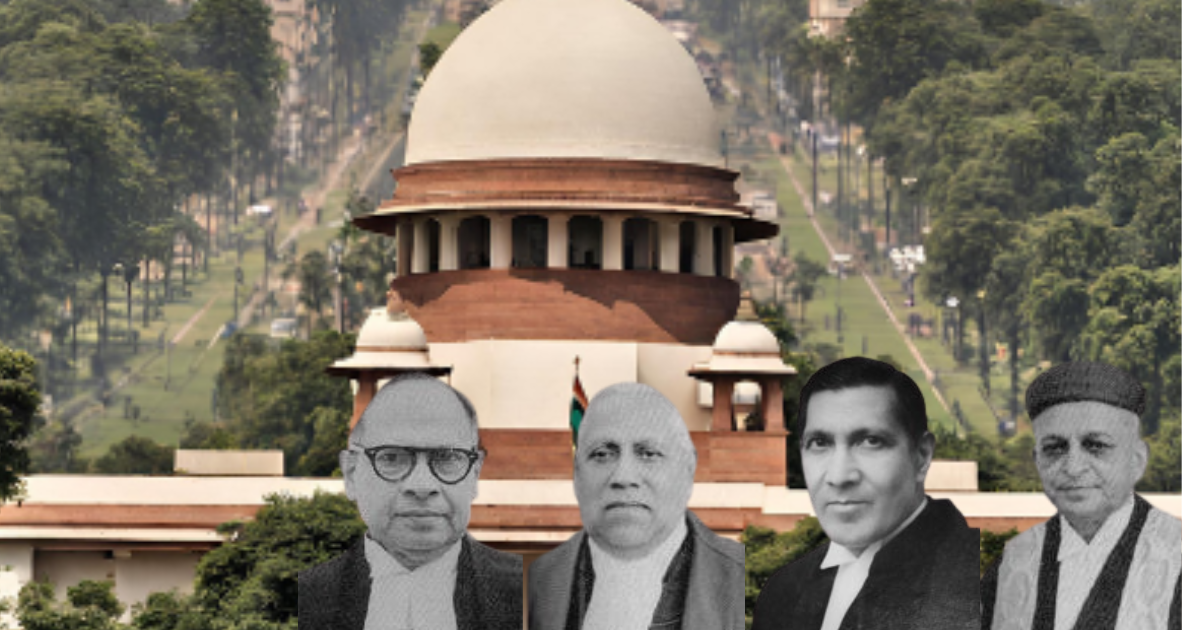In the educational landscape of India, the case of Mohini Jain Vs. State of Karnataka (1992) stands as a groundbreaking legal narrative that addresses the intersection of constitutional rights and access to higher education. The protagonist, Mohini Jain, leads the charge against discriminatory practices, culminating in a landmark judgment by the Supreme Court that establishes the right to education as an essential facet of the right to life under Article 21.
The story unfolds with Mohini Jain, an aspiring medical student, facing the daunting prospect of denied admission to a medical college due to her inability to pay the exorbitant fees. The Government of Karnataka had introduced a fee structure that placed medical education beyond the reach of economically disadvantaged students. Mohini Jain, represented by her legal counsel led by the eminent Soli Sorabjee, embarks on a legal quest to challenge the fee structure, contending that it violated the fundamental right to life under Article 21.
The Mohini Jain’s case centers on the argument that the right to education is inherent in the right to life. The crux of the matter lies in the assertion that economic constraints should not be a barrier to accessing education, especially in professional courses where the government has a duty to ensure equal opportunities. The legal team draws inspiration from precedents such as Unni Krishnan v. State of Andhra Pradesh (1993) and P.A. Inamdar v. State of Maharashtra (2005), advocating for the broader interpretation of Article 21.
The legal analysis in Mohini Jain’s case unfolds before the Supreme Court, led by Chief Justice M.N. Venkatachaliah and a bench of distinguished justices. The Court grapples with the constitutional dimensions of the right to education and its interplay with the state’s duty to provide equal opportunities. The judgment revisits earlier decisions, including Maneka Gandhi v. Union of India (1978) and Olga Tellis v. BMC (1985), to establish the link between the right to education and the right to life.
In a historic judgment, the Supreme Court rules in favor of Mohini Jain. The Court holds that the denial of education due to financial constraints violates the fundamental right to life under Article 21. The judgment emphasizes the state’s obligation to provide affordable and accessible education, especially in professional courses where equal opportunities are crucial. The ruling paves the way for a reevaluation of fee structures and affirmative action in education, ensuring that economic status does not become a barrier to realizing one’s educational aspirations.
The legal echoes of Mohini Jain’s case resonate through the education sector. The judgment becomes a catalyst for policy changes, prompting states to reexamine fee structures and adopt measures to make education more inclusive. It becomes a cornerstone for subsequent judgments addressing the right to education, influencing the framing of the Right to Education Act in 2009.
Section 3 of the Act prohibits the collection of capitation fee by any educational institution or by any person who is in charge of or is responsible for the management of such institutions. Contravention of the provisions of the Act has been made punishable under Section 7 of the Act with imprisonment for a term which shall not be less than three years but shall not exceed seven years and with fine which may extend to five thousand rupees. Section 5 of the Act authorises the Government to regulate the tuition fees by way of a notification. The Karnataka Government have issued a notification under Section 5(1) of the Act wherein the fee charged from Indian students from outside Karnataka has been fixed not exceeding Rs. 60,000 per annum. Whether Rs. 60,000 per annum can be considered a tuition fee or it is a capitation fee is the question for our determination. The notification fixes Rs.2000 per annum as the tuition fee for candidates admitted to the seats in Government medical colleges and for the candidates admitted against “Government seats” in private medical colleges. All these seats are filled purely on the merit of the candidates. It is thus obvious that the State Government in fulfilling its obligation under the Constitution to provide medical education to the citizens has fixed Rs. 2000 per annum as tuition fee for the students selected on merit for admission to the medical colleges and also against “Government seats” in private medical colleges. Therefore, the tuition fee by student admitted to the private medical college is only Rs. 2000 per annum. The seats other than the “Government seats” which are to be filled from outside Karnataka the management has been given free hand where the criteria of merit is not applicable and those who can afford to pay Rs. 60,000 per annum are 681 considered at the discretion of the management. Whatever name one may give to this type of extraction of money in the name of medical education it is nothing but the capitation fee. If the State Government fixes Rs.2000 per annum as the tuition fee in government colleges and for “Government seats” in private medical colleges than it is the stateresponsibility to see that any private college which has been set up with Government permission and is being run with Government recognition is prohibited from charging more than Rs. 2000 from any student who may be resident of any part of India. When the State Government permits a private medical college to be set-up and recognises its curriculum and degrees than the said college is performing a function which under the constitution has been assigned to the State Government. We are therefore of the view that Rs.60,000 per annum permitted to be charged from Indian students from outside Karnataka in Para. 1(d) of the notification is not tuition fee but in fact a capitation fee and as such cannot be sustained and is liable to be struck down. Whatever we have said about para 1(d) is also applicable to Para 1(c) of the notification. Since we have held that what is provided in para 1(d) and 1(c) of the impugned notification dated June 5, 1989 is capitation fee and not a tuition fee it has to be held that the notification is beyond the scope of the Act rather goes contrary to section 3 of the Act and as such has to be set aside. We therefore hold and declare that it is not permissible in law for any educational institution to charge capitation fee as a consideration for admission to the said institution. For the reasons given above we allow this writ petition and quashed para 1(d) and 1(c) of the Karnataka State Government notification dated June 5, 1989. As a consequence paragraph 5 of the said notification automatically becomes redundant. We make it clear that nothing contained in this judgment shall be applicable to the case of foreign students and students who are nonresident Indians. We further hold that this judgment shall be operative prospectively. All those students who have already been admitted to the private medical colleges in the State of Karnataka in terms of the Karnataka State Notification dated June 5, 1989 shall not be entitled to the advantage of this judgment and they shall continue their studies on the same terms and conditions on which they were admitted to the consolidated MBBS course. 682 Although we have struck down the capitation fee and allowed the writ petition to that extent, we are not inclined to grant any relief regarding admission to the petitioner. She was not admitted to the college on merit and secondly the course commenced in March-April, 1991 and we see no justification to direct respondent 3 the medical college to admit the petitioner. The writ petition is allowed in the above terms with no order as to costs.
Citation: 1992 AIR 1858 1992 SCR (3) 658 1992 SCC (3) 666 JT 1992 (4) 292 1992 SCALE (2) 90
Case Title: MISS MOHINI JAIN Vs. RESPONDENT: STATE OF KARNATAKA AND ORS



